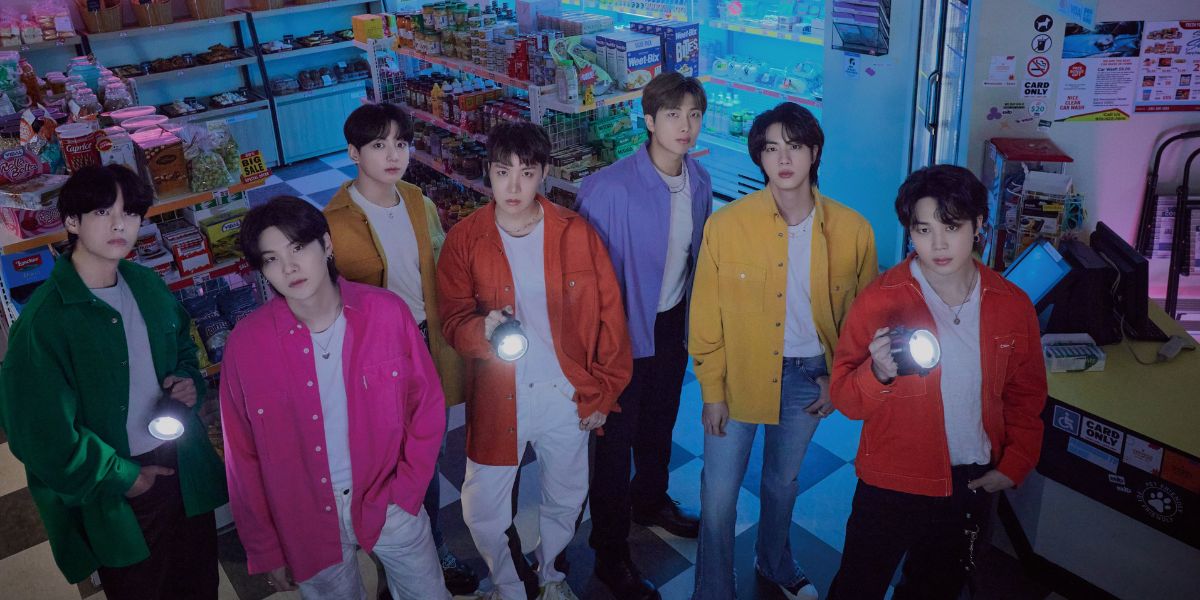The Golden Disc Awards unveiled the “Golden Disc Powerhouse 40” on Thursday, October 23. It was a special tribute to celebrate 40 trailblazers who shaped the history and sound of Korean popular music.
This commemorative list arrives ahead of a huge of the 40th Golden Disc Awards. The award ceremony is set to take place on January 10, 2026, at the Taipei Dome in Taiwan.
The list was carefully curated by a panel of 50 industry professionals, including producers, composers, lyricists, journalists, and critics. Their goal was to recognize the figures who defined Korean pop.
The Powerhouse 40 of Korean Music
The Powerhouse 40 reads like a living timeline. It honors early pioneers, idol legends, and behind-the-scenes creators/songwriters. They changed how Korea and the world listen to music.
Here’s the full list of honorees,
- Kim Gun Mo
- Kim Kwang Seok
- Kim Min Gi
- Kim Wan Sun
- Kim Eana
- Kim Chang Hwan
- Kim Hyun Sik
- Kim Hyung Suk
- Na Hoon-a
- TVXQ!
- DEUX
- Deulgukhwa
- J.Y. Park (Park Jinyoung)
- Bang Si Hyuk
- BTS
- BoA
- BLACKPINK
- BIGBANG
- Seo Taiji
- Girls’ Generation
- Shin Seung Hun
- Shin Joong Hyun
- Shin Hae Chul
- PSY
- IU
- Yang Hyun Suk
- Yoo Young Jin
- Yoo Jae Ha
- Yoon Il Sang
- Lee Moon Sae
- Lee Soo Man
- Lee Young Hoon
- Lee Hyori
- Lim Young Woong
- Cho Yong Pil
- G-Dragon
- Kenzie
- Teddy
- g.o.d
- H.O.T
The list pays homage to the foundations of modern Korean music. It honors artists who laid the groundwork long before “K-pop” became a global term.
Icons like Kim Gun Mo, Cho Yong Pil, and Kim Kwang Seok were game-changers in their eras. On the other hand, Na Hoon-a and Lee Moon Sae bridged traditional and contemporary styles.
Moving into the 1980s and 1990s, figures such as Seo Taiji, Kim Wan Sun, and Deulgukhwa helped define the modern sound of Korean pop. Their songs became anthems of everyday life — heartfelt, timeless, and deeply Korean
The first-generation idol era soon followed, led by H.O.T., g.o.d, and DEUX. They built the blueprint for today’s idol system with intense training and choreography-driven performances.
Then came the groups that carried Korean pop to different countries. BoA, TVXQ!, BIGBANG, and Girls’ Generation received overwhelming popularity in Asia. In the 2010s, BTS put K-pop on the global map. They became the first K-pop act to dominate Western charts and inspired millions of fans.
Not to mention, PSY’s “Gangnam Style” in particular opened the world’s eyes to the power of Korean entertainment.
Artists like IU, BLACKPINK, Lee Hyori, and Lim Young Woong represent the diversity of Korean music.
The Unsung Heroes: Producers, Writers, and Visionaries
K-pop’s success didn’t happen on stage alone — and the Powerhouse 40 honors that truth.
Lee Soo Man (SM Entertainment), Bang Si Hyuk (HYBE), J.Y. Park (JYP Entertainment), and Yang Hyun Suk (YG Entertainment) — founders of the “Big 3” — are all recognized for shaping the idol industry model.
Hit-makers and producers like Yoo Young-jin, Kim Eana, Kenzie, Teddy, and Kim Hyung Suk are also celebrated for crafting global anthems. Teddy wrote and composed numerous hit songs for BLACKPINK, BIGBANG, 2NE1, and many popular groups. He recently worked on the KPop Demon Hunters soundtrack, which is dominating the charts four months after the release.
The Golden Disc Awards committee described it as “a record of Korean popular music’s growth over the last 40 years — honoring those who built, innovated, and inspired.”
Tell us which artist you believe deserved a spot in the Top 40 but was left out.

